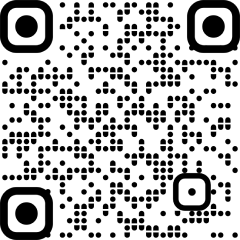Mumbai: Qure.ai-artificial intelligence (AI) firm is partnering with PATH India to launch a project to overhaul tuberculosis (TB) and COVID-19 screening in Maharashtra, India. This collaboration, funded by Unitaid, focuses on the deployment of AI powered qXR software. This software significantly enhances the capability to assess chest X-rays,which will enhance the ability to analyze chest X-rays and substantially improve COVID-19 and TB screening at chosen implementation sites.The software is hosted on a cloud-based platform, ensuring seamless connectivity across various locations.
Before receiving the Unitaid grant, Qure.ai’s qXR had been in operation at seven Brihanmumbai Mahanagar Pallika Hospitals. During this period, the system screened over 90,000 patients for Tuberculosis and various chest abnormalities. Notably, the utilisation of qXR led to a 35 per cent increase in TB Notifications. This increase can be attributed to the system’s ability to detect patients who had come for reasons unrelated to TB, thus uncovering incidental findings through the non-Tuberculosis pathway.
Under the Unitaid-funded initiative,within a 12-month period, qXR is set to be implemented at four prominent healthcare institutions within a year in Maharashtra. These institutions comprise Dr Zakir Hussain Hospital in Kathada and Hindu Hriday Samrat Balasaheb Thackrey Rugnalaya, both overseen by the Nashik Municipal Corporation, along with K.B Bhabha Hospital in Bandra, which falls under the governance of the Municipal Corporation of Greater Mumbai.
Commenting on the collaboration, Dr Shibu Vijayan, Medical Director, Global Health at Qure.ai, stated “We are excited to work alongside PATH, a global health organisation dedicated to achieving health equity through innovation and partnerships and Unitaid to accelerate our fight against TB and help the India government reach the ambitious goal of Ending TB by 2025. By deploying Qure’s qXR software at selected sites in Maharashtra, this project will significantly enhance TB diagnosis’s accuracy, speed, and efficiency, ultimately leading to better patient outcomes and a positive impact on public health.”
In the context of this project, individuals receiving medical care will experience a process involving AI-assisted chest X-ray examinations to detect Tuberculosis within the regular hospital procedure. The journey begins for the patients in the outpatient department (OPD), where an OPD physician conducts the initial assessments. If deemed necessary, a chest X-ray will be administered by a radiologic technician for patients who are suspected of having TB or a chest infection. Patients displaying X-ray findings suggestive of TB will be directed to the tuberculosis counter for sputum collection. Following this, CB-NAAT testing or AFB microscopy will be performed, eventually leading to the initiation of treatment.Neeraj Jain, Country Director, PATH India and the Director, PATH South Asia, stated, “The COVID-19 pandemic has impacted the delivery of essential health services. Through deployment of qXR, we are hoping to support the health workers in triaging, screening and management of COVID-19 and TB, and thus minimising the impact on routine service delivery. The evidence generated will help scale-up technologies that can act as integrated screening solutions”.


